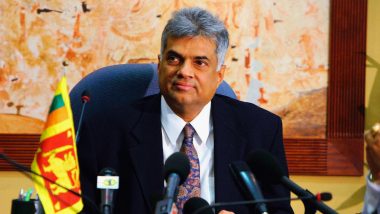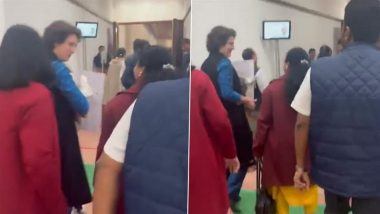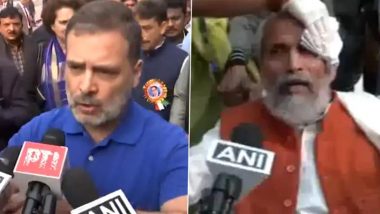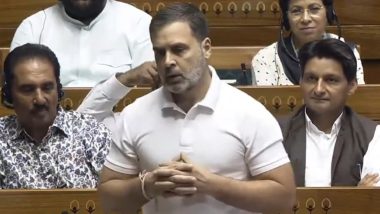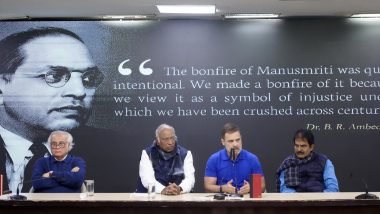Colombo, October 27: Ousted Sri Lankan Prime Minister Ranil Wickremesinghe on Saturday sought an emergency session of Parliament to prove his majority, as the island nation plunged into a constitutional crisis after President Maithripala Sirisena sacked him and made former strongman Mahinda Rajapaksa the new premier.
Speaker Karu Jayasuriya's office said that Wickremesinghe has sent a letter, seeking an emergency session of the Parliament, which was scheduled to meet on November 5 to debate the budget.
Wickremesinghe, who has been asserting that the swearing in of Rajapaksa in his place is "illegal and unconstitutional", wants the issue be settled in parliament with show of numbers.
Sirisena on Saturday formalised the sacking of his former ally by issuing two extraordinary gazette notices. First notice is on Wickremesinghe being removed as prime minister and the other on the appointment of Rajapaska as the new premier. Emergency in Sri Lanka: President Removes PM Ranil Wickremesinghe as Law and Order Minister After Communal Riots.
After Rajapaksa took oath at the Presidential Secretariat here Friday, Sirisena wrote to Wickremesinghe, saying he had been removed. "I had appointed you as the prime minister under (article) 42 (1) of the Constitution and as your appointing authority, I write to notice that you have been removed from the post of prime minister," Sirisena said in the letter.
While most of Wickremesinghe's allies, including the Sri Lanka Muslim Congress (SLMC) has expressed support to Wickremesinghe, the main Tamil party leader R Sampanthan said the party was examining the constitutional position of the issue along with the UN Human Rights Council resolution on Sri Lanka's human rights accountability record.
The UN resolutions passed under the former regime of Rajapaksa was co-sponsored by Wickremesinghe's government pledging to deliver justice to Tamil victims of the separatist war launched by the LTTE.
Sirisena's sacking of Wickremesinghe was the culmination of an year of bitter relations between them on several policy matters. The president has been critical of the prime Minister and his policies, especially on economy and security.
Reacting sharply to his sacking, Wickremesinghe on Friday said that he will continue to be the prime minister till he enjoys the majority in Parliament. "Only I have the majority. The only way that can be changed is through a no confidence motion or if I resign," the United National Party (UNP) leader said referring to the 19th amendment to the Constitution.
In April, Wickremesinghe successfully defeated a no trust motion in Parliament engineered by Sirisena with backing from Rajapaksa. The UNP, however, suffered one defection after Rajapaksa was sworn in with Ananda Aluthgamage meeting the former president and extending him support.
The political developments unfolded after Sirisena's broader political front United People's Freedom Alliance (UPFA) announced that it has decided to quit the current unity government with Wickremesinghe's UNP.
The unity government was formed in 2015 when Sirisena was elected President with Wickremesinghe's support, ending a nearly decade-long rule by Rajapaksa.
Rajapaksa's return to power ends a more than three-year-old coalition government that was formed by Sirisena and Wickremesinghe on a promise to combat corruption and financial irregularities.
Sirisena, who was Rajapaksa's minister of health, broke away from him to contest the presidential elections. Rajapaksa and Sirisena combine has only 95 seats and is short of a simple majority. Wickremesinghe's UNP has 106 seats on its own with just seven short of the majority.
The unity government was thrown into a crisis after Rajapaksa's new party pulled off a stunning victory in local elections in February seen as a referendum on the ruling alliance.
Sri Lanka nearly faced economic sanctions from the West over Rajapakse's brutal military crackdown on the banned Liberation Tigers of Tamil Eelam (LTTE).
The LTTE sought a separate Tamil homeland in the northern and eastern provinces of the island nation for nearly 30 years before its collapse in 2009 after the Sri Lankan Army killed its supreme leader Velupillai Prabhakaran. Rajapaksa and his family were facing several cases of corruption and financial irregularities.






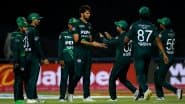






 Quickly
Quickly









